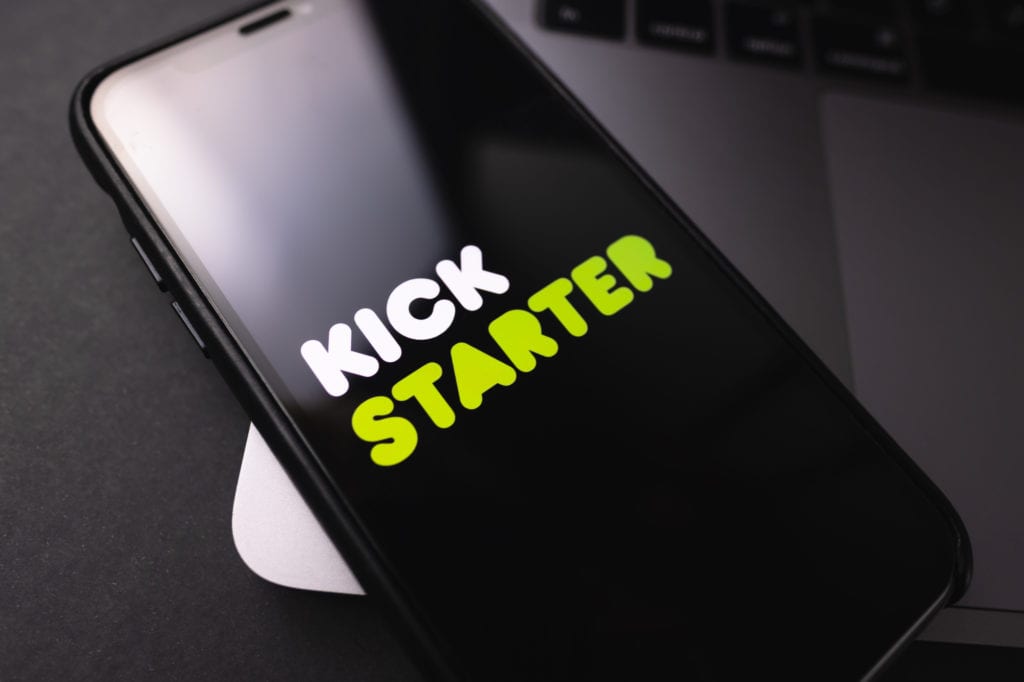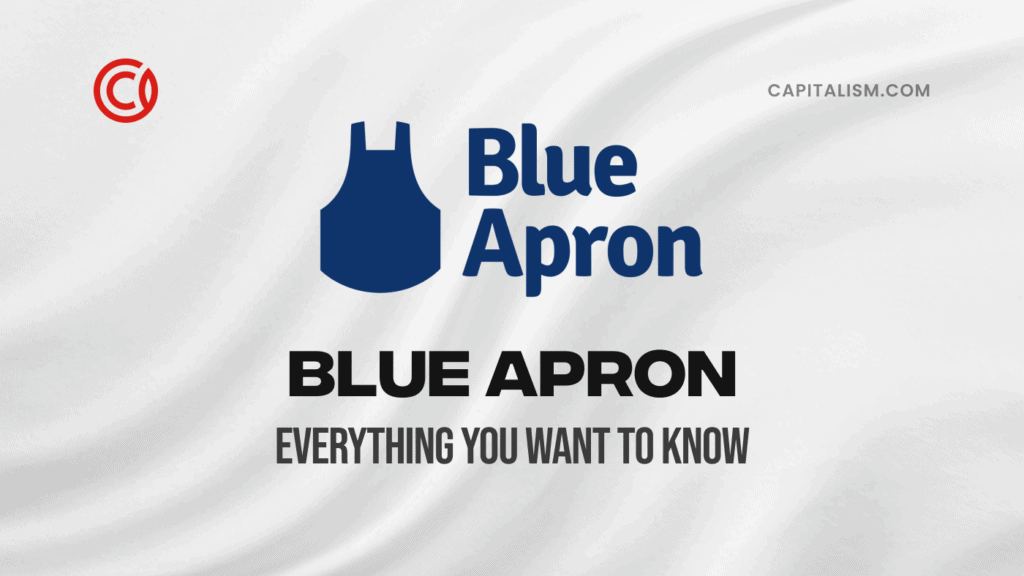Joanna Tossed Aside Her MBA, Accidentally Ordered 40K Units for Her Initial Inventory, and Reinvented the Lingerie Industry with Knix, One Pair of Leak-Proof Panties at a Time
Vaginas leak, boobs sag, and bodies come in all shapes and sizes. But there's a stigma surrounding the female form. For decades, women felt the need to conform to societal standards. In the intimates industry, this meant strutting down a runway wearing nothing but angel wings and push-up bras. Joanna Griffiths of Knix realized early on that women wanted to break the mold and celebrate curves, muscles, scars, flaws, and everything else powerful and remarkable about their bodies.
When the idea for Knix popped into Joanna's head, she surveyed countless ladies for their opinions. She discovered the same theme—traditional underwear wasn't cutting it. Women have a lot going on downstairs, and they wanted products that would prevent odor and keep them dry. Oh, and it should also make them feel sexy and confident.
Knix evolved from the need to provide women with flattering, sexy, and completely functional undergarments. But innovation in the intimates apparel sector was stagnant. As Joanna explained to Fast Company, "Thanks to technology, almost everything has evolved, everything but our underwear." And she knew women deserved better.
From MBA Candidate to Lingerie Mogul
Life was good for Joanna Griffiths. Many would consider her the epitome of corporate success. She held lucrative positions in media and entertainment, working in film, television, and music. Her future looked bright, and she was at the top of her game.

However, Joanna craved to learn more about the world. Education was always essential in her life, and in 2012, she decided to get her MBA and start her own media company. But along the way, her path took a sudden detour.
After having a few conversations with her mother (who also happens to be a doctor), Joanna became painfully aware of the shortcomings of women's undergarments. Flimsy material held moisture and bred bacteria. Period products didn't always adhere to the fabric. Stiff underwire made women dread wearing bras. And men-concocted designs didn't fully cover all the parts. Lingerie offered plenty of sex appeal, but the available options failed women as a whole.
Joanna saw the opportunity to create a product with women's needs in mind.
While wrapping up her MBA, she won the school's annual business venture competition. The generous $20K prize was enough to bring her idea to life. In 2013, Joanna officially founded Knix, an intimates brand. It was her first company, and while scary to start, it seemed like a bigger risk not to do it.
Joanna's initial product launch was leak-proof, period-proof underwear. While not a sexy subject, urinary incontinence affects nearly 1 in 4 women at some point. And the number of panties that get ruined during a monthly menstrual cycle is another topic altogether.
Building a business wasn't too far-fetched for Joanna. She's the type of person who follows her heart. Throwing the idea away would only lead to regrets and what-ifs, and she didn't want to carry those feelings for the rest of her life. So Joanna decided to give Knix a year to see where it led, and she hasn't looked back since.
Knix reinvented the intimates industry. And only seven years after launch, the brand surpassed $50 million in annual revenue. Today, Knix sells a product every six seconds. How did Joanna bootstrap her small lingerie brand to the top? Her winning formula includes clever fundraising, the right people, and an unwavering vision. Check it out:
Never Underestimate the Power of Crowdfunding
Although Knix's first $20K was enough for product development, Joanna quickly realized she'd need to raise a ton more to go in full force. So the brand's initial seed round came from friends, family, and school alumni. She considers them her true angel investors.

Ready to take things to the next level, Joanna decided to try her luck at an Indiegogo campaign. And it was a massive success. The campaign attracted her first 1,000 customers. But perhaps best of all, it provided Knix with valuable feedback. Joanna was able to learn what her audience really wanted, from sizing to styles to silhouettes. She credits Indiegogo with instilling a community-first approach to brand building.
But a successful campaign wasn't without its flaws. Knix also made its biggest mistake thanks to Indiegogo—its first inventory order. The MOQ for buying underwear was huge—upwards of 40K units! And since the product was still a work-in-progress, Joanna jokes that units from the original order still exist in a dark closet somewhere.
That single purchase order setback didn't derail Joanna, however. After learning from her mistake, she tried her hand at Kickstarter. Knix raised over $1.1 million from 13,642 backers. The product? The Evolution Bra.
That Kickstarter campaign was so successful that it took the brand eight months to fulfill all the orders, and she still has low-key PTSD from the ordeal. But Joanna still believes in the power of crowdfunding. Even today, Knix relies on the platforms to reach a new audience, launch innovative products, and gain customer feedback.
Know When to Nix an Idea
After launching Knix, Joanna spent three years at various trade shows to grow an audience. She discovered just how tricky it was to convince others to buy your product. So to reach as many people as possible, Joanna decided to go into wholesale. But it didn't go as planned. The margins were horrible, and it created terrible cash flow. Nothing about the situation was ideal for a young brand with limited access to funds.
Still, Knix remained on the wholesale scene for a solid three years. It was rough. Joanna said yes to everyone and everything. As a result, she started spreading herself too thin. Her mindset had to change. Constantly saying yes was always at the detriment of something else.
One day, Joanna realized that she could do it all by herself. Learning how to say no, would let her commit to a few great things instead of everything. Of course, doing less is often more, but that's a lesson most entrepreneurs can only learn through experience. So she made a firm decision to drop the wholesale market and become a direct-to-consumer brand. It was a bold move, but it was the right choice.

In September 2016, Knix relaunched as online-first. After pulling out of wholesale, Knix sold more in 30 days than in the previous years. Again, the new bra was the top-seller. It opened Joanna's eyes that people wanted to buy these types of products online. And it was something her wholesale partners didn't want to admit.
Consider Doing It All In-House
While still in wholesale, Joanna saw a huge disconnect between her mission and what happened when shoppers actually visited those stores. On Instagram, Knix told the powerful stories of strong women. She created an environment that accepted and appreciated every one. As she said in a Forbes interview, "At Knix, we've always decided that we were going to try to change the system, but we were going to do it from a place of inspiration and being a light."
Joanna knew things had to change. She hated working with retail partners and advertising agencies. Companies spend so much time bringing those people up to speed. And agencies will never care as much as you do. That's why Joanna decided to do it all in-house. The goal was to create an unwavering, mission-focused brand.
Moving everything in-house intimidates some entrepreneurs. Won't it cost more? Take up more time? Create bottlenecks? As it turns out, in-house doesn't have to be expensive. You just have to be creative enough to gain traction. And things run smoother in-house. It makes the feedback loop more effective, and training internally produces long-lasting, dedicated employees.
Doing things in-house helped Knix make the headlines in 2020. In celebration of International Women's Day, the brand produced and released its biggest campaign ever—Age Doesn't Matter. It spotlighted the most marginalized group in the lingerie industry, women over the age of 50. And being able to create it in-house ensured the message reached Knix's audience loud and clear.
A-Team Minds Attract Other A-Team Players
Up until 2016, Knix was still a tiny brand. There were only about five full-time employees. So she couldn't afford to lose a single person. But once sales soared, Joanna realized hiring was in the brand's best interest.
Although selling products drives a profit, Joanna knew she didn't want only to hire people with sales experience. She sought out more entrepreneurial, growth-minded candidates. But it's challenging for fast-growing companies to get it right. Some candidates have industry experience but don't want to build. Others have systems in place and are too stubborn to budge. Executive headhunters helped fill the most vital roles.

Finding the best team in the business took a long time. Joanna loves product and brand marketing—it's her forte. But she can't stand dealing with other aspects, like operations. That's one reason Joanna loves her COO. He's an integrator, and she's not. He knows how to grow and scale Knix without looking for hacks and shortcuts.
Who are the right people for the job? They are the ones who love what the company stands for and will take a risk just to be a part of it. Joanna also believes you need to have clear values yourself and be fully transparent when hiring. She looks for optimistic, empathic people. They should have a desire to build and a hunger for more.
And once you get the right people, your brand will attract even more eager, ready-to-learn candidates. A-team players only want to work with other A-team players. Set high standards when hiring. There's no room for those sitting on the bench.
Continually Add More Channels
Marketing is a never-ending game. The more channels you use, the more people you can reach. Knix decided to start with Facebook ads. Joanna used her media and entertainment experience to create catchy, problem-solving videos. These ads successfully introduced the brand to a bigger audience.
But she couldn't stop there. Joanna believes you need to find a new marketing channel for every $10 million in revenue. Her second endeavor centered around brand ambassadors. She also began focusing on PR and put a lot of effort into customer service. This shift helped increase word-of-mouth marketing tremendously.
And unlike many modern brands, Knix still uses television advertising. Yes, it's still a viable channel. Joanna can review Google Analytics to see which spots worked and which failed as soon as an ad airs.
Joanna is extremely picky about which Knix bras and panties to launch. The intimates category has very little innovation, but people still wear it every day. Knix only brings something to the market if it's new and different. And online marketing ensures if people love something, they'll know exactly where to buy it.

Every month, Knix has a customer-centric meeting. The team reviews all the notes and feedback from email, social media, and phone calls to identify possible themes and opportunities. These meetings reveal what customers want and why they need it. To this day, Joanna still reads every comment on the Knix Instagram page. It helps her remain connected with the people who matter the most—her audience.
What Curious Minds Want to Know About Knix
Let's answer some questions you may have about the brand:
First, who is the owner of Knix?
Joanna Griffiths founded her brand in 2013. Knix is a company that empowers women and embraces body positivity. Joanna saw the brand as her chance to make a positive impact on women's lives.
Is Knix a Canadian company?
Yes! Joanna founded Knix in Toronto.
Where is Knix manufactured?
Knix designs and develops all products in Canada. However, the brand uses sustainable manufacturing facilities in China and South Korea.
Are Knix bras sold in stores?
Not really. Knix does not partner with traditional retail stores, but it does have two brick-and-mortar stores in Toronto and Vancouver.
Wonder where to buy Knixwear? The brand follows an online-first model, and you can browse their full range and read Knix reviews here.
Redefining Sexy on Her Own Terms

Joanna considers herself an accidental entrepreneur. She didn't set out to reinvent underwear, but she realized bras and panties served a limited audience. Women wanted—and deserved—so much more. And Knix brought sexy back in a way no one could imagine possible.
Entrepreneurs are problem-solvers. And while Joanna admits that no one knows what they're doing in today's ever-changing landscape, you will figure out a little more each day. With a strong vision, great product, and powerful team, you too can become the next accidental entrepreneurial success story.











